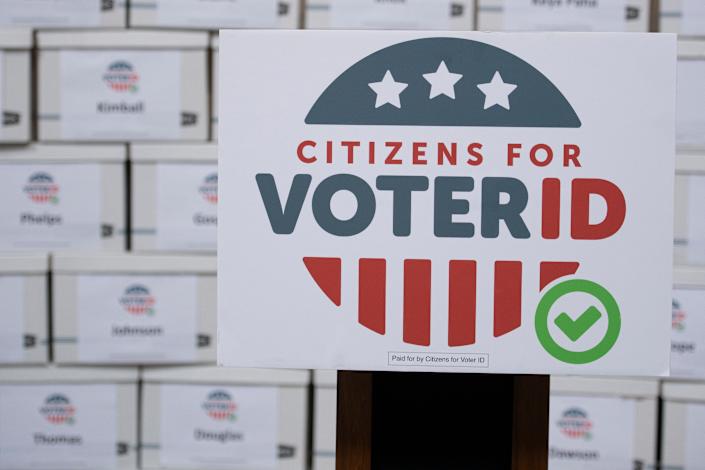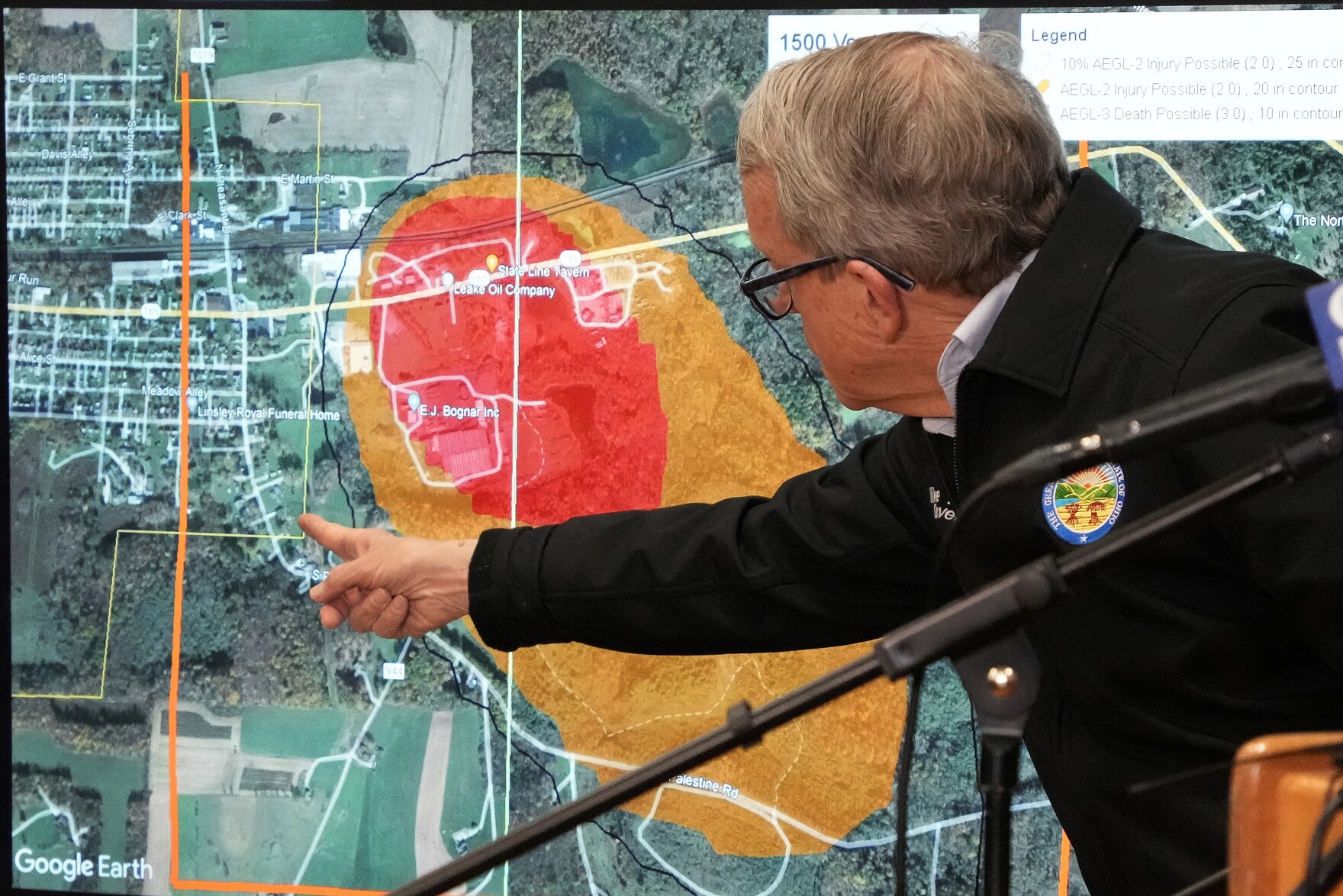Nebraska Voter ID Initiative Receives National Recognition

Table of Contents
Key Features of the Nebraska Voter ID Initiative
The Nebraska Voter ID initiative outlines specific requirements for acceptable forms of identification at polling places. Understanding these requirements is crucial for all Nebraska voters.
Types of Acceptable Identification
The law accepts several forms of photo identification. Voters are required to present one of the following:
- Nebraska Driver's License
- Nebraska State-Issued Identification Card
- U.S. Passport
- Military Identification Card
- Tribal Identification Card
Failure to present one of these forms may result in being unable to vote unless alternative measures, described below, are taken. The specific requirements and acceptable variations are detailed on the Nebraska Secretary of State's website.
Provisions for Voters Lacking Required ID
The Nebraska Voter ID initiative also addresses the needs of voters who may not possess one of the aforementioned forms of identification. The state provides a process to obtain a free voter ID card. This process involves:
- Visiting a designated county election office.
- Presenting required documentation proving identity and residency (specific requirements can be found on the Nebraska Secretary of State's website).
- Completing an application.
However, potential challenges exist for those who lack readily available documentation or face logistical barriers in accessing the necessary resources. This could disproportionately affect certain segments of the population.
Impact on Voter Registration
While comprehensive data is still being collected and analyzed, early indications suggest that the Nebraska Voter ID initiative has not drastically altered voter registration numbers. However, more detailed studies are needed to definitively assess the initiative's overall impact on registration trends. Future research will focus on the longer-term implications for voter registration and participation.
National Reactions to the Nebraska Voter ID Initiative
The Nebraska Voter ID initiative has elicited a diverse range of reactions across the nation, reflecting the broader national debate surrounding voter identification laws.
Supportive Arguments
Proponents of the initiative cite enhanced election security and the prevention of voter fraud as key justifications. They argue that stricter voter identification requirements bolster public confidence in the integrity of the electoral process. Arguments often include:
- Reduced potential for fraudulent voting.
- Increased transparency and accountability in elections.
- Strengthened public trust in election results.
Supporters point to similar initiatives in other states as evidence of their effectiveness in maintaining secure elections.
Criticisms and Concerns
Conversely, critics express concerns about potential voter suppression and the disenfranchisement of vulnerable populations. They argue that the initiative places undue burdens on certain groups, including:
- Elderly voters.
- Low-income individuals.
- Minority communities.
- Individuals with disabilities.
These criticisms highlight the importance of balancing election security with ensuring equitable access to the ballot box for all eligible voters. Concerns often center on accessibility and the potential for creating barriers that disproportionately impact certain demographic groups.
Comparisons to Similar Initiatives in Other States
The Nebraska Voter ID initiative shares similarities with laws in other states, but also presents some key differences. For example, some states offer more flexible options for acceptable identification, while others provide more extensive support for voters lacking required documentation. A comparison of initiatives in states like Georgia, Texas, and Arizona reveals a spectrum of approaches, each with its own set of challenges and outcomes. Further comparative analysis will provide valuable insights into the impact of varying voter ID laws.
Long-Term Implications and Future of the Nebraska Voter ID Initiative
The long-term consequences of the Nebraska Voter ID initiative remain to be seen, and several key factors warrant consideration.
Potential for Legal Challenges
The initiative's constitutionality could face legal challenges, particularly concerning its potential impact on voter access and the rights of specific demographic groups. The outcome of such challenges could significantly shape the initiative's future implementation.
Impact on Future Elections
The initiative's influence on voter turnout and election results in subsequent Nebraska elections is a critical area for future research. Analyzing the impact on voter participation and any shifts in voting patterns will provide valuable data on the initiative's effectiveness and potential unintended consequences.
Lessons for Other States
The Nebraska experience offers valuable lessons for other states contemplating similar legislation. Key takeaways include the importance of:
- Careful consideration of the potential impact on vulnerable populations.
- Providing sufficient support and resources for voters to obtain required identification.
- Transparent and accessible implementation procedures.
These lessons will help inform the design and implementation of future voter ID initiatives, ensuring they strike a balance between security and accessibility.
Conclusion
The Nebraska Voter ID initiative represents a significant development in the ongoing national discussion surrounding election integrity and voter access. Its key features, national reception, and potential long-term implications highlight the complex considerations involved in balancing these competing objectives. While proponents emphasize enhanced security, critics raise concerns about potential voter suppression. The initiative's success will depend not only on its impact on election security but also on its fairness and accessibility to all eligible voters. Further research and careful monitoring of its impact are essential. The Nebraska Voter ID initiative serves as a significant example in the ongoing national conversation about election integrity and voter access. Further research and analysis are needed to fully understand its impact. Stay informed about the ongoing developments regarding this important Nebraska Voter ID legislation and its effects on voting rights across the nation. Learn more about voter identification laws in your state by researching your local election authorities' websites.

Featured Posts
-
 Loyle Carners New Album Everything We Know So Far
May 02, 2025
Loyle Carners New Album Everything We Know So Far
May 02, 2025 -
 Tvs Dallas The Passing Of Another Beloved Actor
May 02, 2025
Tvs Dallas The Passing Of Another Beloved Actor
May 02, 2025 -
 Rethinking School Suspensions Promoting Positive Discipline
May 02, 2025
Rethinking School Suspensions Promoting Positive Discipline
May 02, 2025 -
 Krispiga Kycklingnuggets I Majsflingor Enkel Asiatisk Sallad Recept
May 02, 2025
Krispiga Kycklingnuggets I Majsflingor Enkel Asiatisk Sallad Recept
May 02, 2025 -
 Priscilla Pointer Dead At 100 Dallas Star And Steven Spielbergs Mother In Law Passes Away
May 02, 2025
Priscilla Pointer Dead At 100 Dallas Star And Steven Spielbergs Mother In Law Passes Away
May 02, 2025
Latest Posts
-
 The Lingering Effects Of Toxic Chemicals From The Ohio Train Derailment
May 11, 2025
The Lingering Effects Of Toxic Chemicals From The Ohio Train Derailment
May 11, 2025 -
 Ohio Derailment Investigation Into Persistent Toxic Chemical Contamination
May 11, 2025
Ohio Derailment Investigation Into Persistent Toxic Chemical Contamination
May 11, 2025 -
 Toxic Chemicals From Ohio Train Derailment Building Contamination
May 11, 2025
Toxic Chemicals From Ohio Train Derailment Building Contamination
May 11, 2025 -
 Crooks Office365 Exploit Nets Millions According To Federal Authorities
May 11, 2025
Crooks Office365 Exploit Nets Millions According To Federal Authorities
May 11, 2025 -
 Office365 Executive Inboxes Targeted Millions Stolen Investigation Reveals
May 11, 2025
Office365 Executive Inboxes Targeted Millions Stolen Investigation Reveals
May 11, 2025
